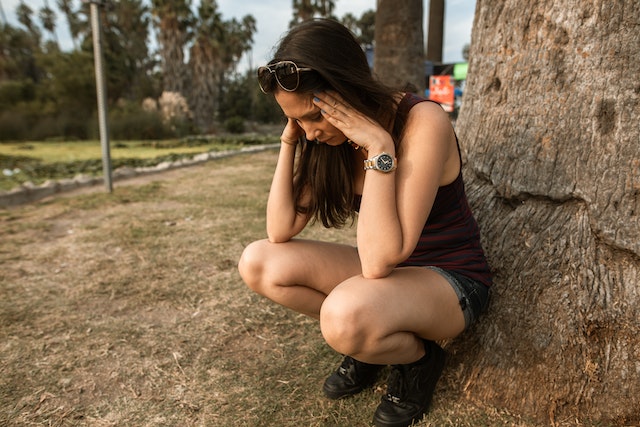Coping with anxiety can be a challenging and exhausting journey, prompting many to seek relief through prescription medications. While these medicines offer short-term symptom relief, it’s crucial to acknowledge the potential for long-term side effects.  Here, we explore four of the most common negative effects associated with anxiety drugs.
Here, we explore four of the most common negative effects associated with anxiety drugs.
Addiction and Withdrawal
A significant concern surrounding anxiety drugs is the high risk of addiction. Many medicines, including benzodiazepines, enhance the effects of GABA, a neurotransmitter that calms the brain.
Prolonged use may lead to the body’s reliance on the medication, and sudden discontinuance can trigger dangerous withdrawal symptoms. Those taking anxiety drugs must work closely with their doctors to find an IOP for benzo addiction if they plan to stop taking the medication.
Cognitive Decline
Another worrisome side effect of anxiety drugs is cognitive impairment. Medications such as benzodiazepines cause issues with concentration, memory, and cognitive function, especially in older users.
The cognitive effects of benzo use can affect work performance, daily activities, and quality of life.
Research shows that long-term anxiety drug use is linked to a higher risk of cognitive decline and dementia in the elderly. Therefore, providers must weigh the benefits and risks of long-term use and find alternative treatments when available.
Emotional Dullness
While anxiety drugs can help users regulate their emotions, an inadvertent consequence may be the diminishing of those feelings. Blunting is the reduced intensity of negative and positive emotions.
Though it may be beneficial for anxiety management, it leads many to lose their ability to experience empathy, excitement, and joy.
Emotional blunting strains interpersonal relationships and hinders self-discovery and growth. Those using anxiety medications for the long term may feel emotionally numb or detached from their surroundings.
Users must communicate openly with their care teams about the changes they experience while taking anxiety medications. In some cases, doctors may explore adjustments or treatment alternatives.
Increased Risk of Slip-and-Fall Injuries
Some anxiety drugs, including benzodiazepines, contribute to a higher risk of fractures and falls in older users. Medicines like Xanax and Valium can cause dizziness, drowsiness, and impaired coordination, making users more likely to slip and fall.
The increased risk of falls and broken bones has significant consequences for older users, potentially leading to failing health and lost independence. Healthcare teams must strike a balance between the potential risks and therapeutic benefits of anxiety medications for older individuals, and consider alternate treatments with fewer adverse effects.
Managing Anxiety Without Medication
Like other therapeutic approaches, alternatives to anxiety medications vary in efficacy from one person to another. Alternative strategies may include:
- Getting more exercise: Physical activity is a known stress reliever.
- Sleeping more soundly: A lack of sleep triggers stress, and patients must do what they can to improve sleep hygiene.
- Relaxation techniques: Massage, meditation, yoga, and other techniques ease anxiety.
- Avoiding vices: Discontinuing the use of alcohol, caffeine, and tobacco will decrease anxiety naturally.
Find a program that recommends medication in addition to—not in place of—natural coping techniques.
Acknowledge the Benefits, But Consider the Risks of Anxiety Medications
While prescription drugs provide relief to those struggling with anxiety, it’s important to use them cautiously and with awareness of their potential long-term effects. Addiction and withdrawal, cognitive decline, emotional numbness, and an increased fall risk are some of the most common concerns healthcare providers and individuals face.
Open communication, regular medication monitoring, and the exploration of alternative treatments create a sustainable, balanced approach to long-term anxiety management.
Related Posts:
- What impact does anxiety have on the family
- 8 Strategies to Help Manage Moving Stress and Anxiety
- How To Help Your Child Deal With Anxiety: Use These Strategies to Fight Back
- How To Deal With Anxiety And Overwhelm As A Mom
- 6 Tips To Manage Stress, Anxiety & Depression as A Mom
- How effective is psychotherapy for anxiety?